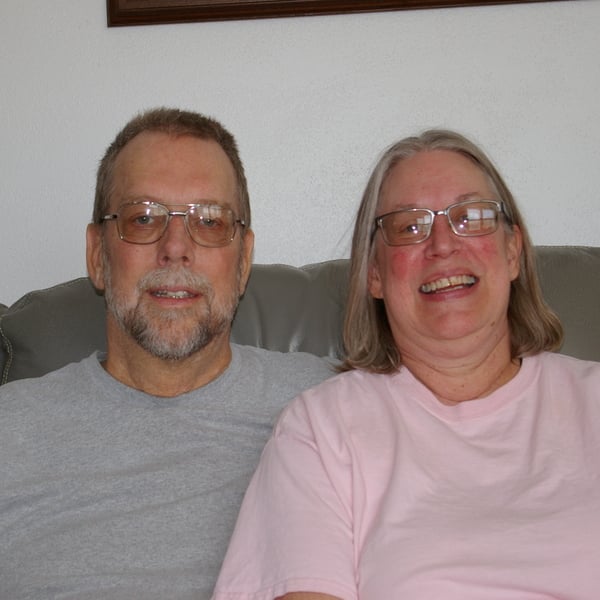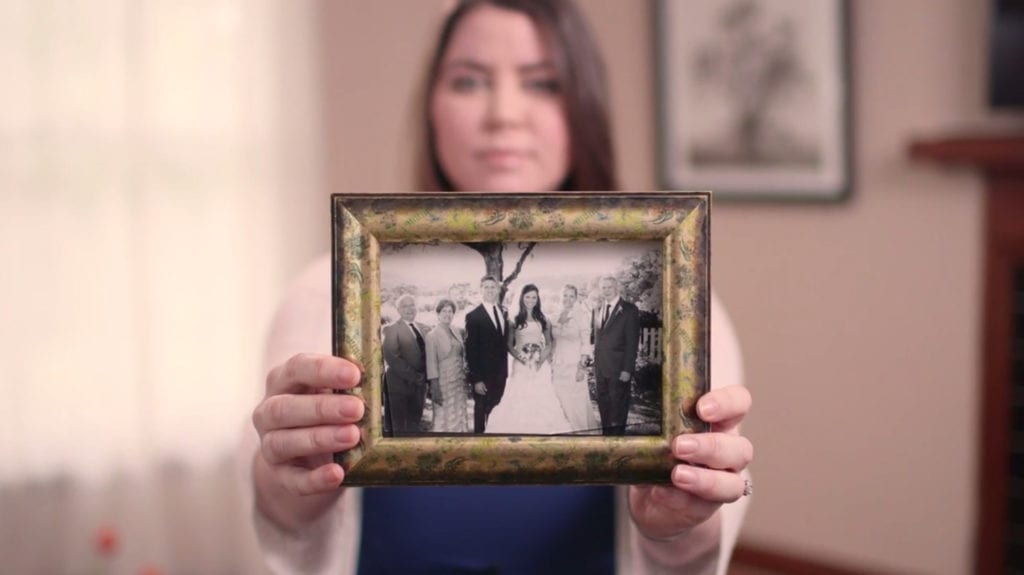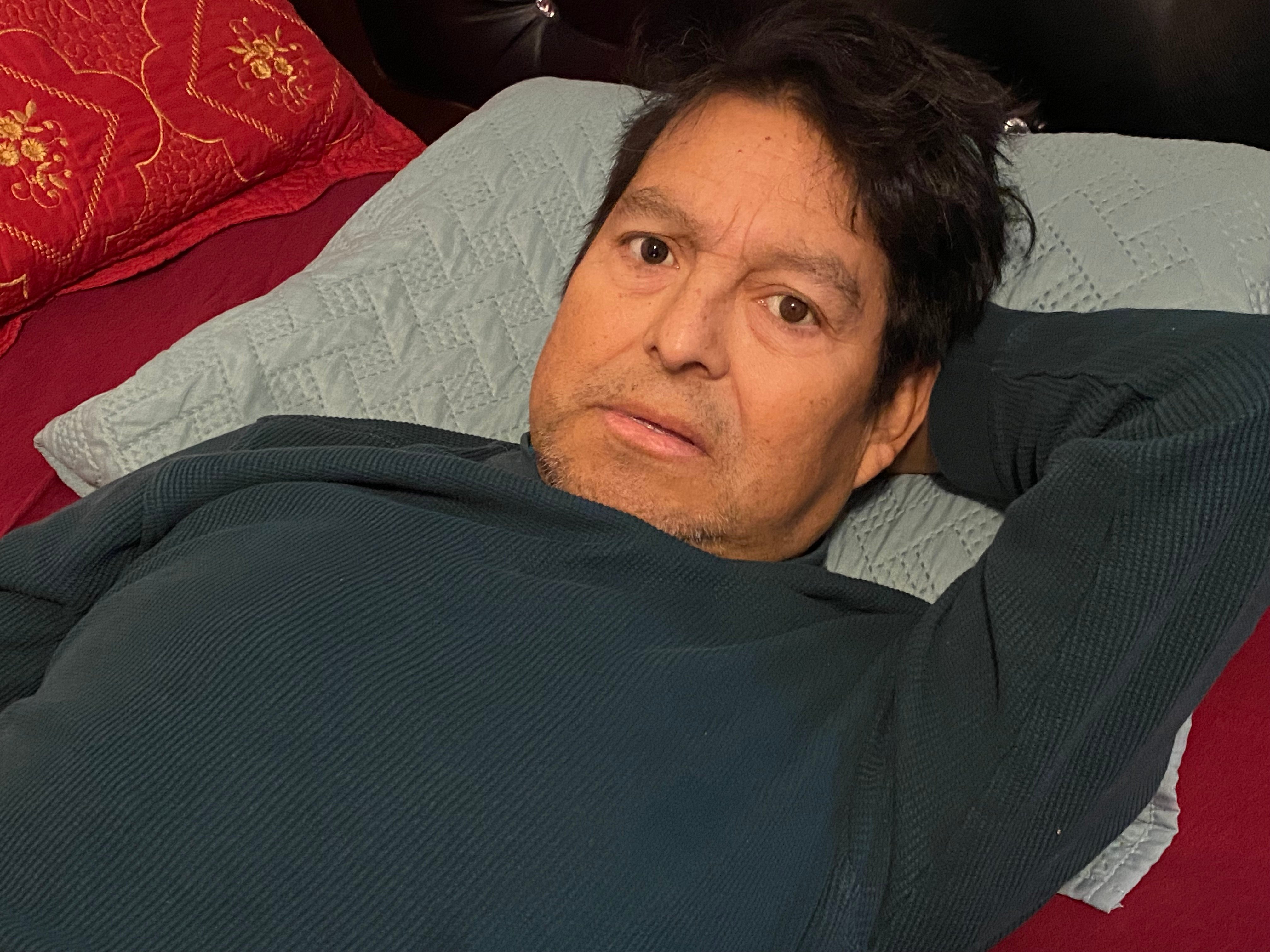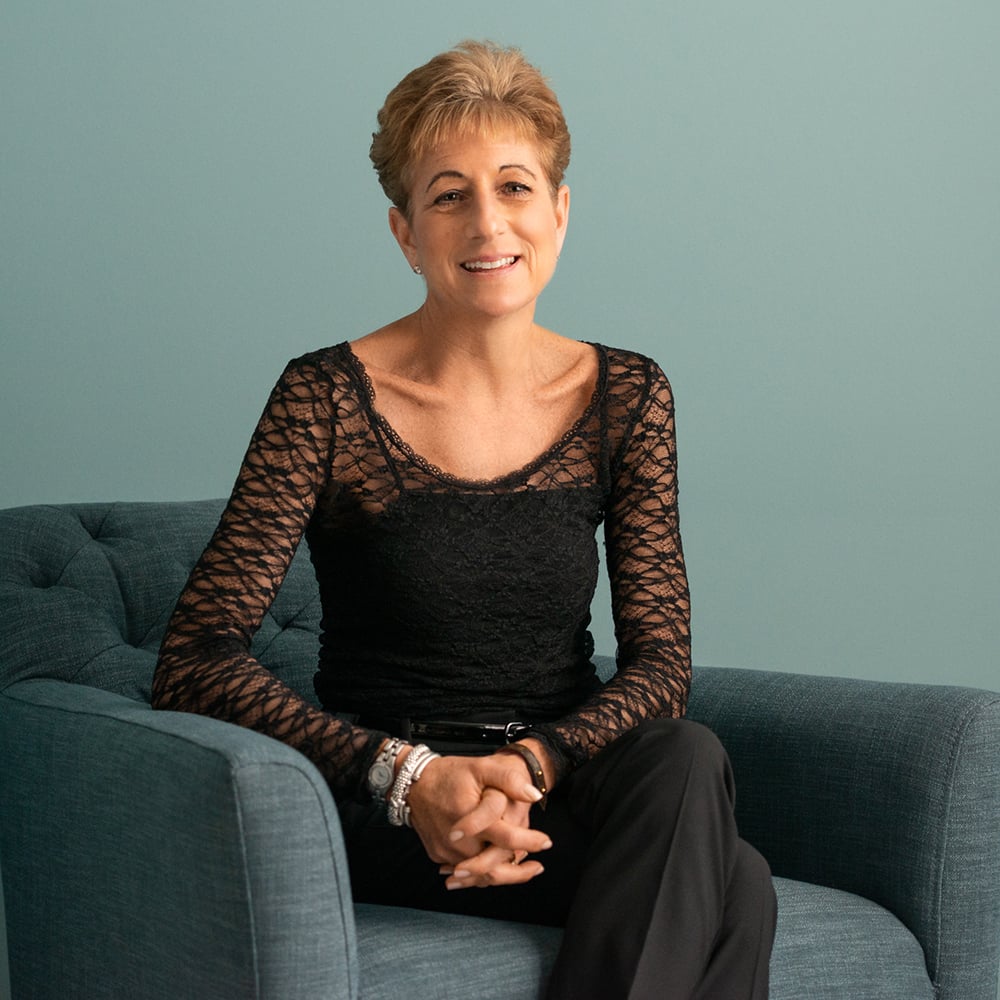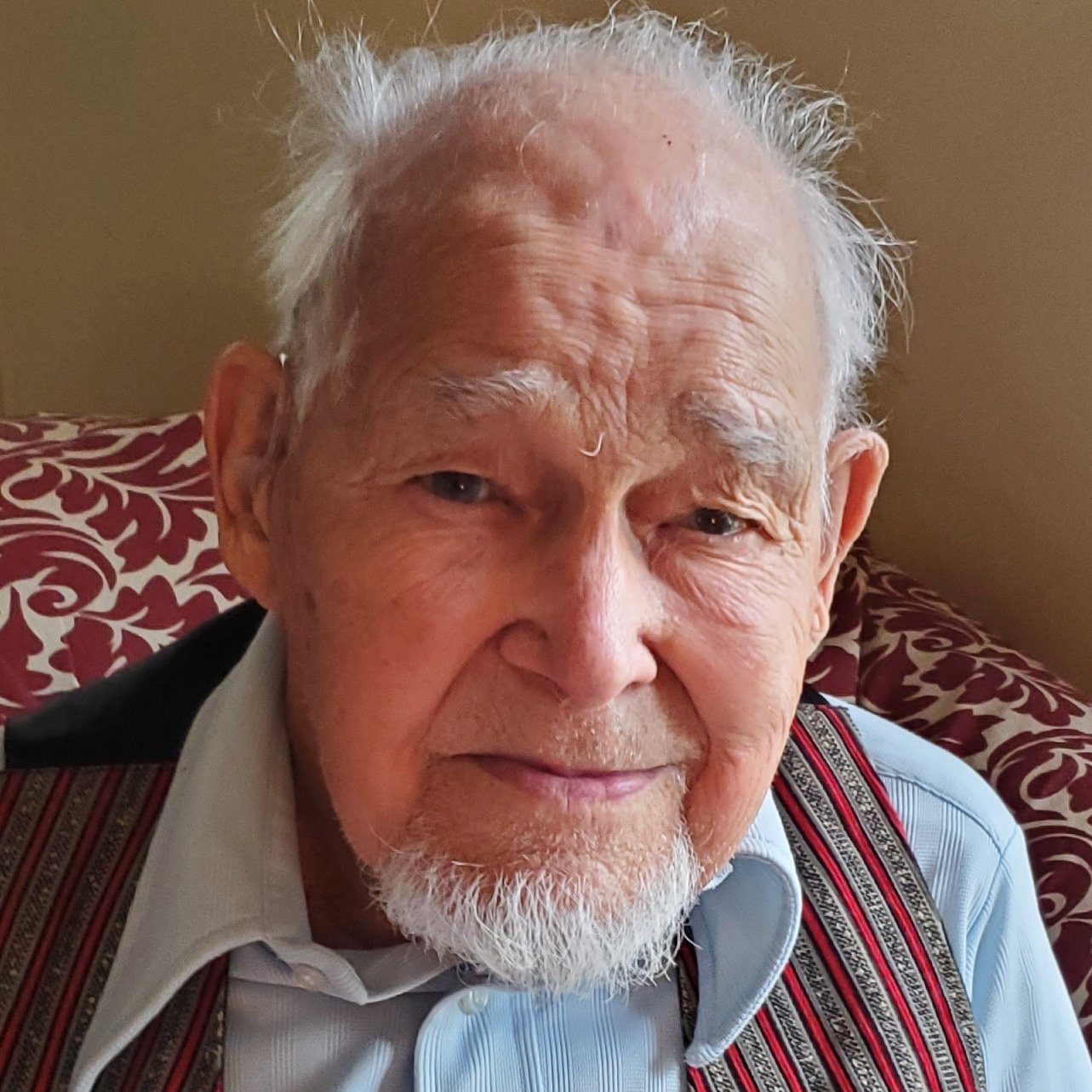Becki shared her story in August of 2022.
I lost my best friend on December 8, 2020. Brad and I had been married for 36 years after meeting at a Halloween party where he was dressed as a pastor and I was dressed as Jane of the Jungle. We joked that he had stolen me from Tarzan and that six couples were living in sin because he married them that night. As soon as we started dating, we realized we clicked right away, and our shared sense of humor helped us through tough times.
We spent nearly four decades enjoying each other. We loved camping and motorcycling, and we were planning on doing a lot of traveling now that we were both retired and once COVID-19 settled down. We were being extremely cautious since Brad had asthma, and we didn’t want him to get sick. He told me that if he did catch COVID, it would kill him. Little did we know how very close he was to his future.
It started in July of 2020. Brad would run errands and have to stop and think through how to get to the store that he had been to many times. One night he started to look for a particular show online, got distracted and ended up watching something else. And then … the odor began. He would ask me if I smelled the odor too. I would look at him crazily, and he would forget all about it. He would stop in mid sentence and just stare into space. Then he would tell me that he smelled the same odor again. He said that it smelled familiar, but he couldn’t place it. That was when we decided to have him see the doctor. I was very worried, especially about the phantom scents. I didn't say anything to him, as I didn't want to worry him further.
When we got to the doctor’s office and she heard what was going on, she ordered an MRI. I waited for him in the waiting room — fully masked — and we were told that we would receive a phone call with the results.
Two days later, the doctor called us: “You have a mass.” I wanted to stop time and dwell on what that meant; however, as we said many times after that, Brad was the ears and I was the brain. I am hard of hearing, so I needed him to translate. He had a bad memory, so I wrote everything down.
We were referred to a neurosurgeon and a neuro-oncologist, and the process began. Multiple MRIs, tests and a biopsy later, we learned that it was glioblastoma stage 3 — brain cancer. The moments when Brad was zoning out and smelling a distinct odor were seizures associated with the tumor. Brad read about his diagnosis online, and it was not a good prognosis for a man of his age and the advancement of the disease. He decided to not pursue treatment and asked if I was mad. I told him that it was his decision to make, but to keep an open mind as to whether or not anything could help him. He was stubborn (which I knew) and said that he didn’t want to put us in debt for something that may only increase his life by a couple of months.
The progression of the illness increased quickly. Brad had days when he was agitated and nothing could calm him. His seizures increased in frequency, and he feared that it would take longer and longer to get back to normal after an episode. His concentration diminished to about a 10-minute attention span toward the end of his life. He couldn’t follow the plot of a sitcom anymore. He would watch game shows since that was the only thing he could follow. He often forgot loved ones’ names, though he knew who they were. He would ask me the same question over and over again, and he’d apologize for it. It didn’t bother me, but it upset him.
One day, while sitting on the couch, he turned to me and said, “I am just existing. I am no longer living.” It broke my heart. I knew that he was in agony. Though he didn’t have any physical pain, he was suffering.
We were basically prisoners of our house since neither of us were working and we didn’t want to catch COVID. Sitting on the couch during the day may have been boring, but we cherished every day we had together. We did a lot of laughing, a lot of crying, and we shared many emotions — the greatest one being the love that we had for each other.
One day, Brad asked me to run some errands. While I was out of our home, he called the police to let them know that he saw a dead body in our backyard, then he took his life. Only half a block away at my mother-in-law’s house, we heard the sirens and went out to see the police and EMTs at our home. Police shared what had happened. I found letters that Brad had written to me, our daughter and first responders. The rest is a blur.
It’s difficult enough to go through a terminal diagnosis. It angers me that Brad didn’t have a peaceful way to end his suffering. He had to do this all alone. He died alone. It could have been different. I think about obituaries where the deceased was surrounded by family. That’s a beautiful way to leave earth. Unfortunately, Brad did not have that opportunity. If medical aid in dying had been available in Minnesota, I imagine that it would have eased his mind a bit. Brad could have had a nonviolent way to end his suffering, an option that would have allowed me to be with him in his last moments. That would have made it so much easier for everyone involved.
If you believe that terminally ill residents in Minnesota should not have to suffer like Brad did, add your name here.
If you’re thinking about suicide, are worried about a friend or loved one, or would like emotional support, I encourage you to call or text the National Suicide Prevention Lifeline at 988. Talking with someone about your thoughts and feelings can save your life.


